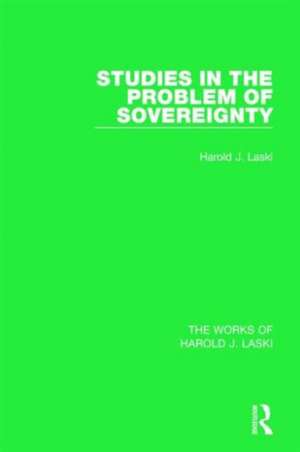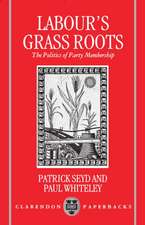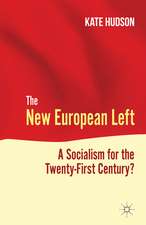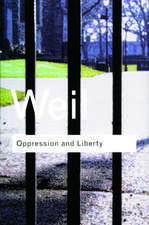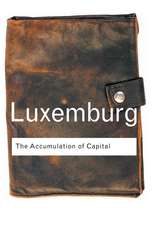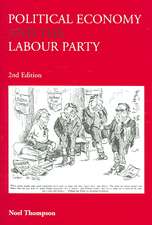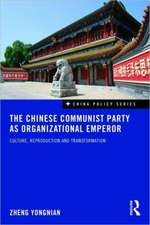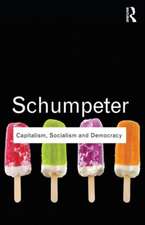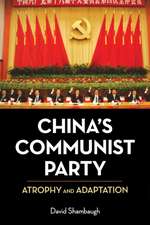Studies in the Problem of Sovereignty (Works of Harold J. Laski): The Works of Harold J. Laski
Autor Harold J. Laskien Limba Engleză Paperback – 18 oct 2016
| Toate formatele și edițiile | Preț | Express |
|---|---|---|
| Paperback (1) | 247.40 lei 6-8 săpt. | |
| Taylor & Francis – 18 oct 2016 | 247.40 lei 6-8 săpt. | |
| Hardback (1) | 849.77 lei 6-8 săpt. | |
| Taylor & Francis – 31 oct 2014 | 849.77 lei 6-8 săpt. |
Din seria The Works of Harold J. Laski
- 17%
 Preț: 247.40 lei
Preț: 247.40 lei - 17%
 Preț: 247.40 lei
Preț: 247.40 lei - 17%
 Preț: 247.40 lei
Preț: 247.40 lei - 17%
 Preț: 247.40 lei
Preț: 247.40 lei - 17%
 Preț: 247.40 lei
Preț: 247.40 lei - 17%
 Preț: 247.40 lei
Preț: 247.40 lei - 17%
 Preț: 247.40 lei
Preț: 247.40 lei - 16%
 Preț: 216.07 lei
Preț: 216.07 lei - 12%
 Preț: 299.52 lei
Preț: 299.52 lei - 16%
 Preț: 118.03 lei
Preț: 118.03 lei - 12%
 Preț: 299.52 lei
Preț: 299.52 lei - 17%
 Preț: 247.40 lei
Preț: 247.40 lei - 33%
 Preț: 9691.54 lei
Preț: 9691.54 lei - 17%
 Preț: 272.50 lei
Preț: 272.50 lei - 17%
 Preț: 247.40 lei
Preț: 247.40 lei - 17%
 Preț: 247.40 lei
Preț: 247.40 lei - 44%
 Preț: 160.55 lei
Preț: 160.55 lei - 12%
 Preț: 299.52 lei
Preț: 299.52 lei
Preț: 247.40 lei
Preț vechi: 296.34 lei
-17% Nou
Puncte Express: 371
Preț estimativ în valută:
47.34€ • 49.13$ • 39.57£
47.34€ • 49.13$ • 39.57£
Carte tipărită la comandă
Livrare economică 15-29 martie
Preluare comenzi: 021 569.72.76
Specificații
ISBN-13: 9781138823112
ISBN-10: 1138823112
Pagini: 312
Dimensiuni: 156 x 234 mm
Greutate: 0.45 kg
Ediția:1
Editura: Taylor & Francis
Colecția Routledge
Seria The Works of Harold J. Laski
Locul publicării:Oxford, United Kingdom
ISBN-10: 1138823112
Pagini: 312
Dimensiuni: 156 x 234 mm
Greutate: 0.45 kg
Ediția:1
Editura: Taylor & Francis
Colecția Routledge
Seria The Works of Harold J. Laski
Locul publicării:Oxford, United Kingdom
Public țintă
PostgraduateCuprins
1. The Sovereignty of the State Chapter 2. The Political Theory of the Disruption 3. The Political Theory of the Oxford Movement 4. The Political Theory of the Catholic Revival 5. De Maistre and Bismarck
Descriere
An influential study of political power, originally published in 1917. Laski's theoretical ideas are elaborated through examples drawn from political and religious movements, such as the Catholic Revival and the creation of the German Empire. He concludes that the state is not a supreme entity; it is one association among many that must compete for the people's loyalty and obedience.
